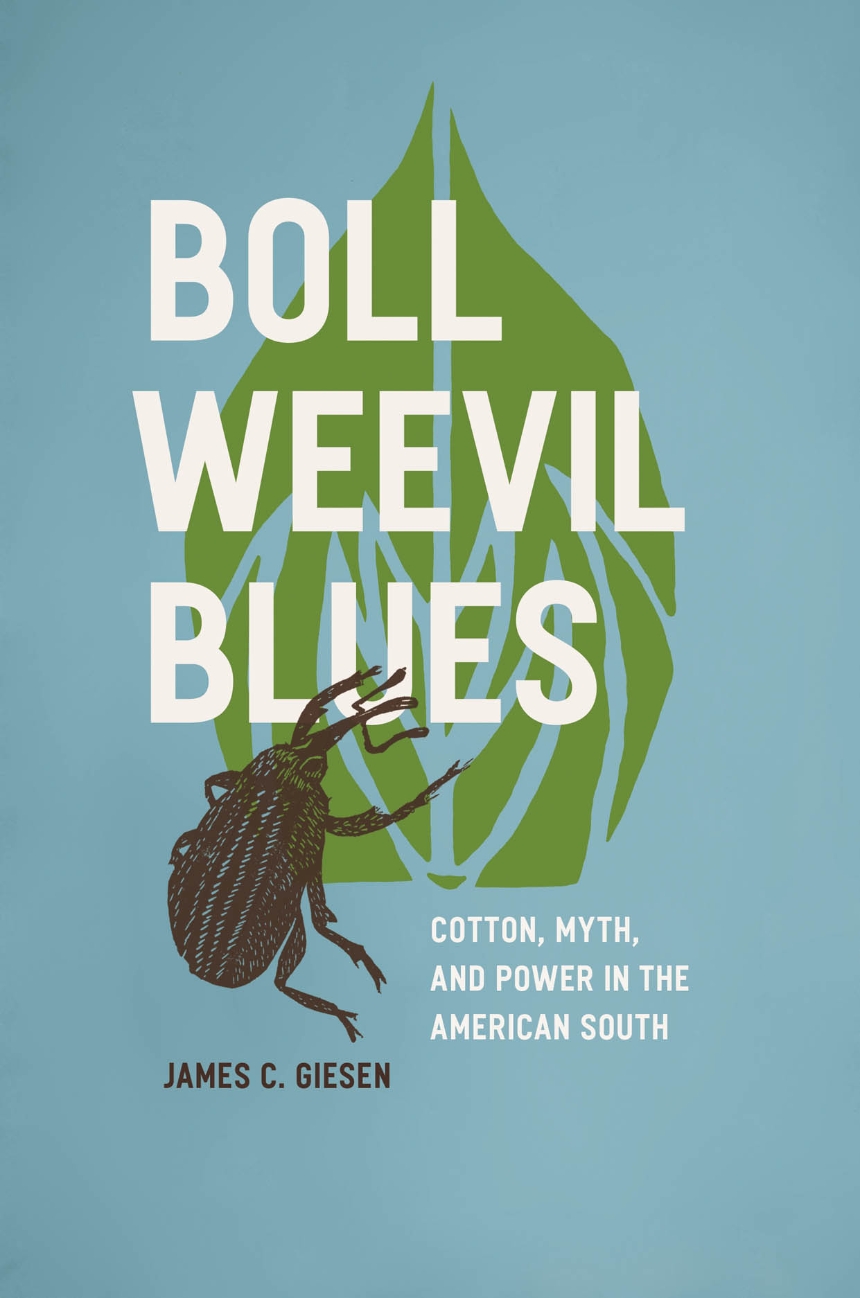Boll Weevil Blues
Cotton, Myth, and Power in the American South
Between the 1890s and the early 1920s, the boll weevil slowly ate its way across the Cotton South from Texas to the Atlantic Ocean. At the turn of the century, some Texas counties were reporting crop losses of over 70 percent, as were areas of Louisiana, Arkansas, and Mississippi. By the time the boll weevil reached the limits of the cotton belt, it had destroyed much of the region’s chief cash crop—tens of billions of pounds of cotton, worth nearly a trillion dollars.
As staggering as these numbers may seem, James C. Giesen demonstrates that it was the very idea of the boll weevil and the struggle over its meanings that most profoundly changed the South—as different groups, from policymakers to blues singers, projected onto this natural disaster the consequences they feared and the outcomes they sought. Giesen asks how the myth of the boll weevil’s lasting impact helped obscure the real problems of the region—those caused not by insects, but by landowning patterns, antiquated credit systems, white supremacist ideology, and declining soil fertility. Boll Weevil Blues brings together these cultural, environmental, and agricultural narratives in a novel and important way that allows us to reconsider the making of the modern American South.
240 pages | 5 halftones, 4 maps, 10 figures, 7 tables | 6 x 9 | © 2011
History: American History, Environmental History
Reviews
Table of Contents
Introduction
Chapter 1 Myth Making on the Cotton Frontier
Chapter 2 Cultures of Resistance in Texas and Louisiana: Tenants Make Sense of the Boll Weevil
Chapter 3 “Map Maker, Troublemaker, History Maker”: The Boll Weevil Threatens the Delta
Chapter 4 Delta Solutions Big and Small
Chapter 5 “The Herald of Prosperity”: The Promise of Diversification in Alabama
Chapter 6 “You Will Be Poor and Ignorant and Your Children Will Be the Same”: The Boll Weevil Myth Transformed
Chapter 7 Cotton’s Obituaries: The Boll Weevil in Georgia
Conclusion The Boll Weevil’s Lost Revolution
Notes
Acknowledgments
IndexAwards
Frances S. Summersell Center / University of Alabama: Deep South Book Prize
Won
Southern Historical Association: Francis B. Simkins Award
Won
